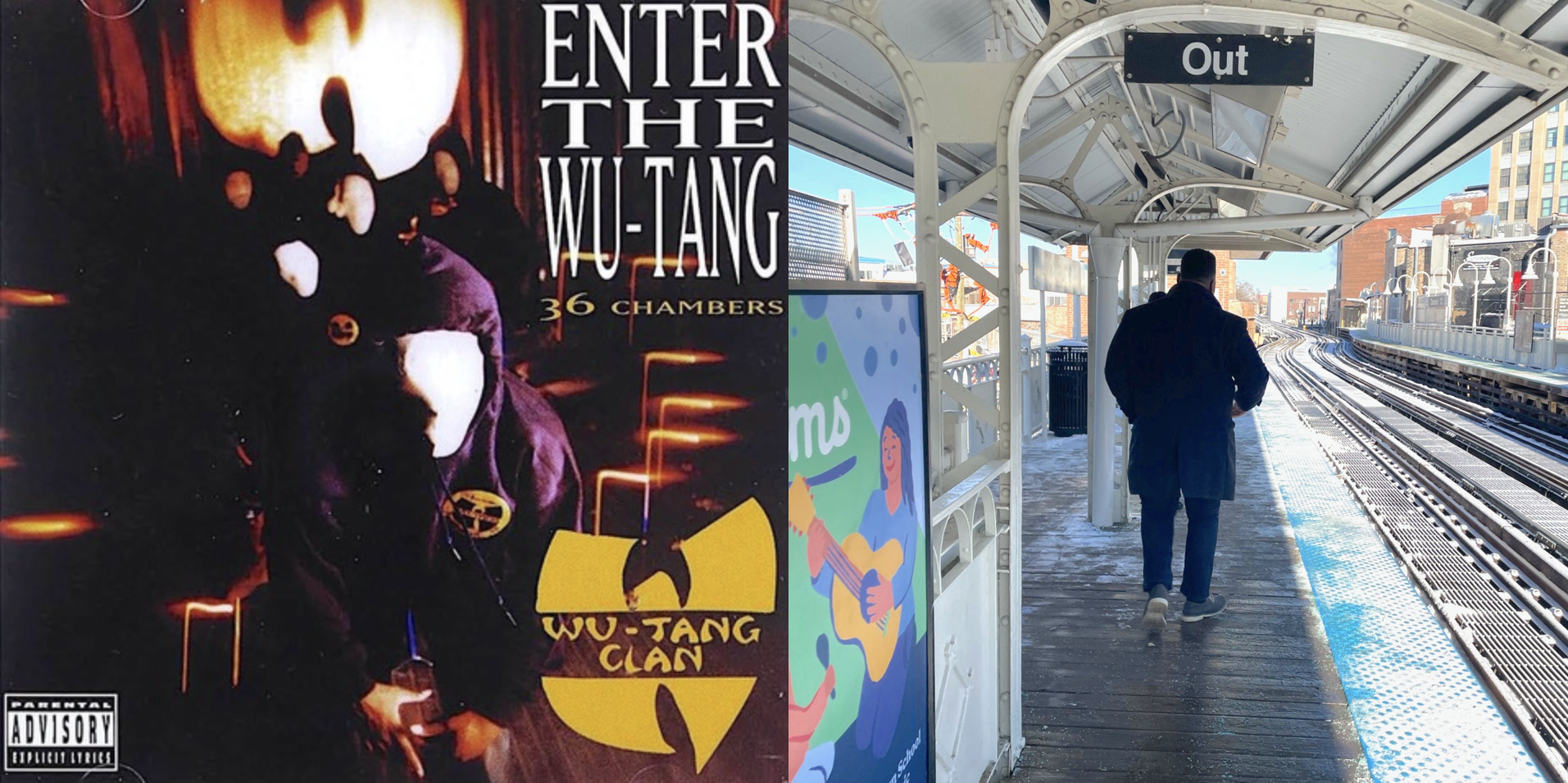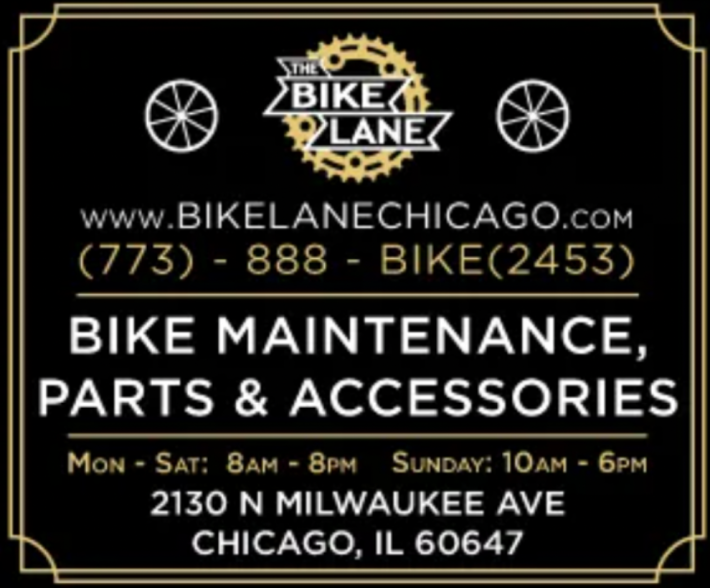
Check out Wednesday's interview with House Speaker Welch about transit funding here.
Read Streetsblog's recent interview on this topic with Senate President Harmon here.
Read our interview with Sen. Villivalam on this subject here.
Check out our interviews with State Sen. Mike Simmons and State Rep. Hoan Huynh on the topic here.
"Cash Rules Everything Around Me
C.R.E.A.M., get the money
Dollar, dollar bill y'all"
- "C.R.E.A.M." by Wu-Tang Clan, 1993 (NSFW)
Indeed, cash rules everything around Springfield politicians, especially when they're trying to raise at least $771 million to avoid Chicagoland's looming transit fiscal cliff, and preferably allocate $1.5 billion a year to upgrade the system.
To get up to speed, read a short recap of efforts to plug the budget gap in the intro to yesterday's interview with Illinois House Speaker Emanuel "Chris" Welch.
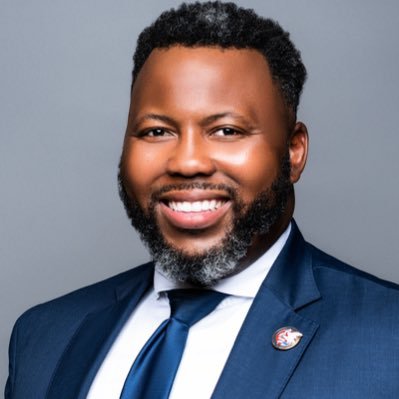
The following interview with Rep. Kam Buckner, a resident of Chicago's Bronzeville neighborhood who serves as House speaker pro tempore and is an outspoken sustainable transportation advocate, has multiple musical references. That's not just because I was involved. That's partly due to the fact Buckner's father Raymond sang lead for a '70s soul group, and Kam Buckner is cousins with R&B artists Jennifer Hudson and Mavis Staples.
But let's get rolling with this public transportation funding mix tape, which includes lots of other memorable commentary about the fiscal cliff from Buckner. His Wu-Tang simile will serve as the final mic drop.
The interview has been edited for clarity and brevity.
Is it worth waiting until October to pass a transit funding/reform bill?
John Greenfield: There's a quote attributed to German statesman Otto von Bismarck from the late 1800s, where he supposedly said, "Laws are like sausages. It's best to not see them being made." In this process, I'm kind of a person who's trying to go behind the scenes to see how the sausage is made, and it does seem like a complex process.
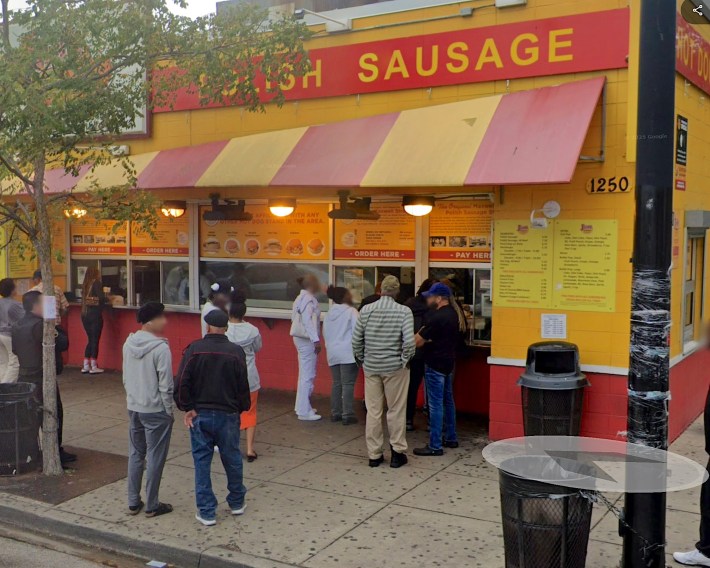
So just to give you my point of view on this thing, for a second, I'm wondering if there might be too many cooks in the kitchen here. Are there too many people trying to get the transit bill together? I mean, at the House, are you folks kind of reinventing the bus wheel?
They passed the Senate bill [HB 3438] on May 31. I've seen your quotes to the Tribune about how you feel that things were rushed, that you didn't get fair warning about the $1.50 surcharge on restaurant and retail items delivered by motor vehicles, which we at Streetsblog Chicago call "the burrito taxi tax." That seems like a reasonable complaint. And you said that you also had to focus on the general state budget.
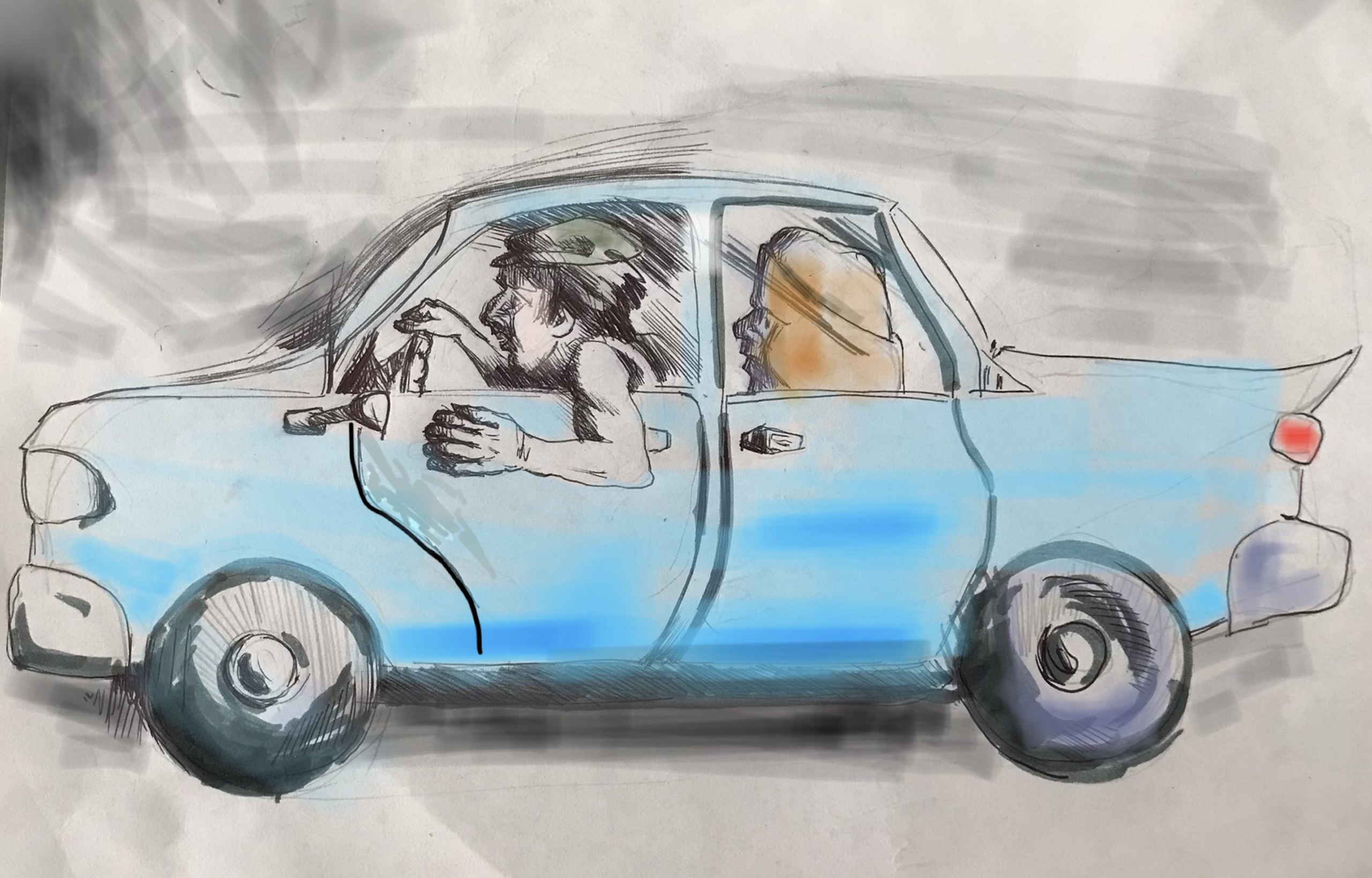
But as I said to Speaker Welsh yesterday, you've had lots of time to think about the delivery charge. Obviously, the general budget is not an issue right now. So my question for you is, what's wrong with the Senate bill that Sen. [Ram] Villivalam sponsored that barely passed – why do you feel needs to be overhauled? Why is it worth waiting until October to vote on a transit funding bill?
Rep. Kam Buckner: There are few things. One, so I'm not taking the position that there's something quote "wrong" with the Senate bill. I think that that is the wrong position to take. But I've said publicly, what I'll continue to say, is that the process and the timing have to matter. We briefed our [Democratic] caucus at the direction of Speaker Welch a total of 13 times in the spring session about the transit bill, conversations, negotiations. We put together, at the speaker's behest a Public Transit Working Group over a year ago that begin to work on this, because we knew this was going to be a big issue, and we needed to create some generational legislation to move us forward.
What the House did, and what I've said, and I know the speaker has echoed this as well, is that when we did get the bill from the Senate at I guess, 11:50, or 47 p.m., with literally minutes to go in the fall legislative session, we believed that it would be disingenuous to put something like that on the board without having briefed our caucus about it.
What's going on this summer with creating a transit bill?
And so I think that's number one. Number two, I want to level set a little bit on this, right? There are a lot of people at the table. There are a lot of conversations happening. The House working group is actually still meeting. We're not on summer break. We're meeting in person, and we're still parsing through what the best version of this is going to be.
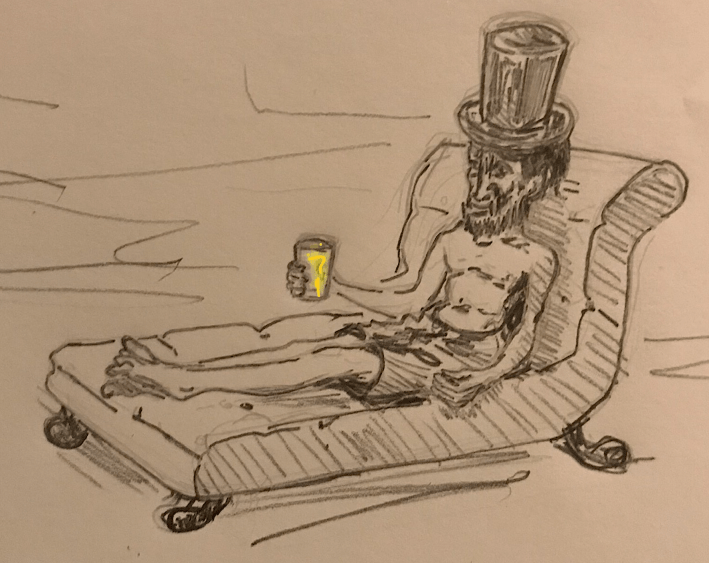
There aren't a lot of anecdotes or stories about 1974, 1983, 2008 when we had these type of conversations before, because Springfield was a different place. And so I want to remind folks, you can't spend years complaining that one man [recently convicted ex-House Speaker Mike Madigan] had too much power in Springfield, and turn around and gripe that too many people are at the table now.
Now, this is a very deliberate process. It's a very transparent process. We're doing it in public. Sunlight and scrutiny is the only way to get to this version.

So I understand, I know you probably will ask more about the calls for a summer session, and I get it. Initially, I thought maybe we would get there as well, and it would be the right thing to do, based on where we were. But based on where we are today, I think calling a special session before you get an agreed bill is just like sending out a wedding invitation without a partner. Dennis Rodman married himself, right? But for the rest of us, that's not a great strategy. If you're not "The Worm," it doesn't make sense.
So I get that the urgency is real, John. I mean, we've got to take this very seriously. But we also have to be concerned with not just getting it done, but getting it right. And I think that we will do that. I totally believe that when we return for the veto session in October, we will have a version of this bill that works for all interested parties.
If the House won't vote on the Senate bill that passed, what changes do they want?
JG: I mean, I know this is really tough nut to crack. You've got to raise money, and no one is going to be completely happy with everything you propose.
You know, with the Senate bill, [International Union of Operating Engineers] Local 150 was dead-set against a 50-cent toll surcharge. Uber immediately sent out push notifications against having an additional ride-hail fee.
We know someone's going to dislike this bill, however it turns out. So there just has to be political courage for politicians to say, "Hey, we're not going to make everybody happy."
So the question is, you've had lots of time to look at the Senate bill, it passed, and I know that you would have had to have a [60 percent] supermajority to pass the bill after midnight, once you got it. So, yeah, it was, it was bad that you got it so late.
But there's going to be something wrong with the bill. Someone's not going to be happy with it. You're not going to please all the political lobbying groups. So what changes need to be made to the Senate Bill?
RKB: Once again, we're still having conversations, and this is not a situation where there are just a few of us in the room trying to dictate what happens to the future of transit in this state, because that would be foolhardy. But what we are doing is the House working group that is extremely representative of this state. We've got folks from around the state, folks from different backgrounds, different demographics, and these districts really do represent what we look like.
We are literally parsing through every piece of it. We're pretty much consistent on the reform between the House and the Senate. We worked with [Governor JB Pritzker's] office on that, and we got to, I think, a good spot for the majority of that.
The question obviously came in on how to pay for it. And when you start talking about revenue, people have a lot that they're concerned about. So our members knocking on doors, talking to folks, meeting them in cafes and barber shops around the state, having this conversation. Once again, I am not entering this conversation from the space that there is something "wrong" with the Senate bill. But there has to be a process, and we're still undertaking it right now.
Also, a few weeks ago, people were speaking as if the numbers were final and the deadline had passed, and we had messed something up. But just two weeks ago, [The RegionalTransportation Authority] found an extra $150 million dollars.
JG: Right, money in the couch cushions.

RKB: That's not nothing, that's real money, but it proves my point that I've always believed that we're under pressure, but the clock has not stopped ticking. Things are continuing to move. It's not pencils down yet. But what we're going to do is come together to create the type of legislation that the people in Illinois can be proud of.
It may not make everybody happy. In fact, there will be a lot of people who will not be completely happy with this final product. But what matters is we can create a system that works and that we're not back in this situation in 15, 20, or 30 years, or in 40 years, there's not someone in my seat saying, "Kam Buckner, Eva-Dina Delgado, and Ram Villivalam really messed that thing up. To me, this is important to make sure that we get it right.
What if, due to their efforts to pass the "right" bill, lawmakers don't pass any bill at all?
JG: I think people are not so worried about Senator Villivalam and yourself messing up the bill, and like doing a bill that's not good...
RKB: They should be.
JG: But you know what would be even worse than writing a bill that is imperfect? Not passing a bill at all. It really seems like we're very much in danger of that happening, that we're gonna have the 40 percent service cuts and the 3,000 layoffs. You're just asking for a lot of faith from people: "Oh, we can get this solved."
Let me just say what the RTA government affairs person, Rob Nash, said during a June 12 RTA board meeting. He said six days during the veto session wouldn't be much time to avert the fiscal cliff. You're also going need a 60 percent supermajority. The Senate Bill, which only needed a simple majority, 51 percent, barely squeaked by.
So it just seems like the folks of the House have a lot of confidence that you're going to be able to do something really challenging, which is get 60 percent approval of this controversial vote within six days. What's your response to that?
RKB: I am confident because it's not happening by osmosis. It's happening because we're literally having conversations every single day with all of the members of our caucus. All the members of our caucus are having meetings with their constituents every single day. This is not something that just went up for us into committee and that didn't get the light of day from our people. The House is not operating the way it did a decade ago [under Madigan ]. And what Speaker Welch has been very clear on is that he wants buy in from all of us. So there, there have been great ideas and thoughts and solutions and observations even up to the last couple of days about this.
And so I think I understand why people have angst and why they're nervous, because Springfield has always operated a certain way that is no longer the reality.
This is not a situation where all stakeholders can't be at the table figuring out how to thread this needle, and land this plane, for lack of a better term.
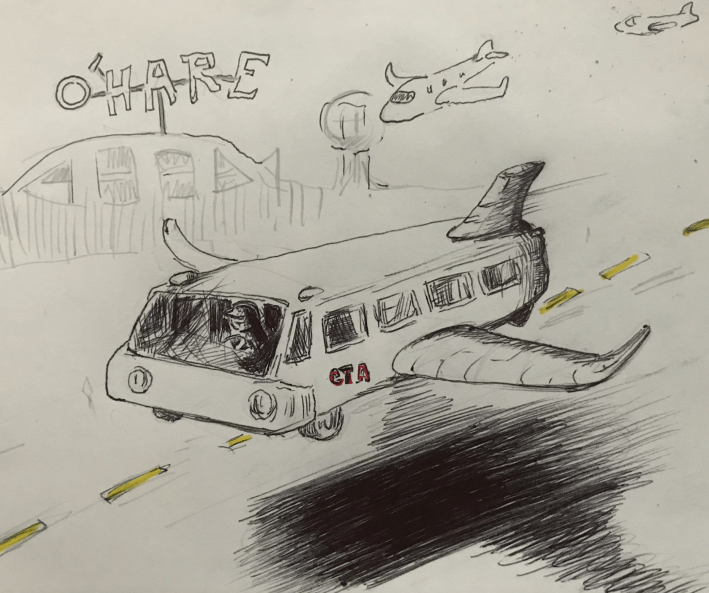
Again this is not a summer off for us while we're not feeling when we're over.
I said, we're not fiddling while Rome burns, doing the Nero. We're getting this right.
I know a lot of folks are talking about what's happening in Philly with SEPTA [which recently announced 45 percent service cuts due to Pennsylvania not passing transit funding]. And what has happened with the T in Boston [which also has a looming fiscal cliff]. Recently, I had a face-to-face conversation with Pennsylvania Speaker of the House Joanna McClinton in Philadelphia, about what they are facing and what they're doing. And [Rep. Eva-Dina Delgado, who's co-leading the working group with Buckner] and I sat down yesterday morning with the chair of the Massachusetts Senate Transportation Committee in Boston, Brendan Crighton, and we talked about the T and their struggles. We exchanged ideas.
The work is continuing to happen, and I do have confidence that we will get there. We won't be sitting here in four months trying to figure out whether or not it happened. October's right around the corner, and so we'll know very shortly if it works, and I truly believe that it will.
Why didn't the House hustle to pass a bill before a supermajority was required?
JG: I don't mean to armchair quarterback or have 20-20 hindsight here. But the real lesson from this experience seems to be, this would have been so much easier if you'd passed the bill before the spring session ended. You would have just needed a simple majority.
At least the Senate got around to finding a funding source, but they still got their bill passed too late for you folks to vote on it. But you folks at the House didn't even get around to finding a funding source. You knew that there was this deadline between a 51-percent majority and a 60-percent majority. Why did you folks take so long to talk about transit governance that you didn't even have time to come up with a funding source?
RKB: We always said revenue was important, but we also also always said that reform had to happen. This was something that we echoed for a very, very long time, and it was not news to anyone that it had to be a part of the equation. Reform without revenue is a fantasy, and revenue without reform is a mistake. And so if we were going to find ways to fix this transit system, we had to do all we could to get that done first.
And so I understand that this is harder now, but I'm not scared of harder, John, I think this part of what we sign up for. You don't take the easy wins just because they're an easy win. The right thing to do is to get this right, and you find a way to get this right, not just to get this done.
JG: I respect that attitude. But one thing that I'm sure you're very aware of is that if we lose 40 percent of transit and there are 3,000 layoffs, people are going to be very unhappy. A lot of people who have no idea what's going on in Springfield are just going to learn about this and be extremely upset.
You've seen the study that if there's a $771 million cut to RTA funding, then the whole state of Illinois could lose $14 billion in economic activity.
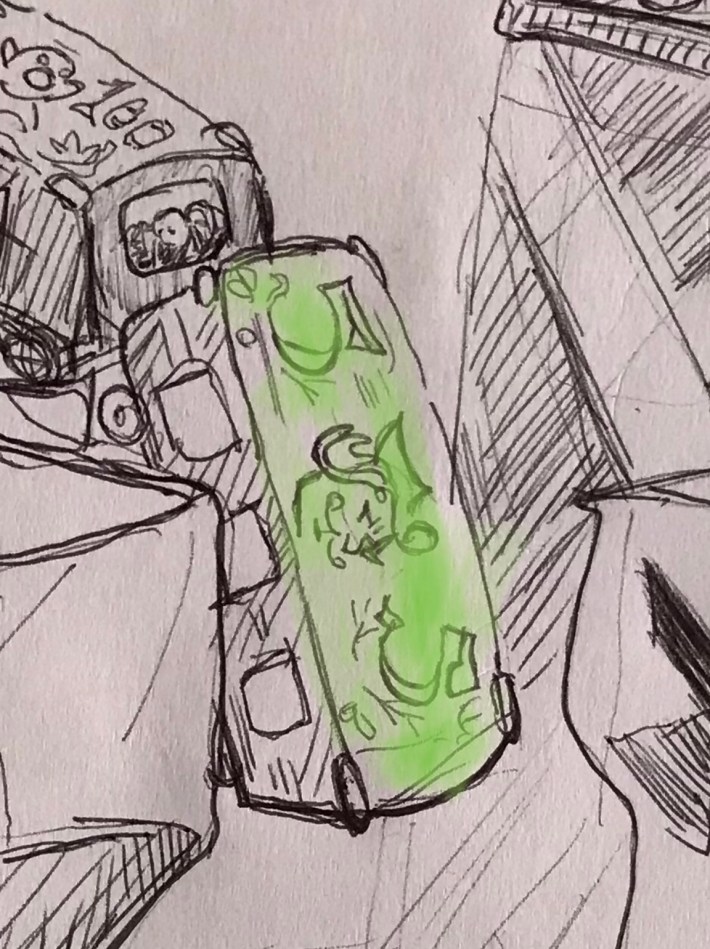
So I think you're aware that if you don't pass this funding bill, there's going to be a lot of reasons for you Springfield politicians to not get reelected. People are going to be really angry about this. I mean, it really seems like your top priority should be just making sure the funding passes. What are your thoughts on that?
RKB: My top priority should not just be making sure the funding passes. Top priority has to be – and you should know that somebody who cares about public transportation – it has to be creating a system that works for people, not just today, but for generations to come now. Now, that includes revenue, that includes money, but it also is predicated on a reform that works, because, two things, your point is right, if we don't pass this in Springfield before the clock ticks down to triple zeros, then shame on us, and the people will have something to say about that.
But what is also true is that if we take this money, and we give people the same system they have today, then shame on us, and the people should take notice of that as well. The system, the way it is, is not working for people
at all. We have to change that.
And so I understand it's very American, it's part of our psyche, when we start talking about money, that becomes the only thing we talk about. that's an extremely important part. But any legislator who tells you that their number one priority is money, and not fixing this system, is someone that I can't vibe with when it comes to how we handle this transit situation.
JG: Now, of course, what we've got here is a little bit of friendly fighting. There's some he said, she said between the Senate and the House. We're talking about transit-friendly Democrats in Illinois, so you folks should all be buddies.
How can downstate lawmakers be convinced to support a transit bill?
So once you folks settle your differences, it seems like the real challenge is going to be getting a sufficient number of legislators, from suburbs that don't have much transit, and downstate politicians, to get on board with this so that you can pass that supermajority. Do you think you're gonna be able to do that, or are there too many red districts where there's just no way they're going to vote for a bill funding transit in Chicagoland?
RKB: So I've always said that that this can't just be a Chicago or Northeast Illinois bill. This has to be an Illinois bill, right when it comes to transit. Part of the reason that folks have been able to say this is a Chicago bailout is because they have not been able to pinpoint how this helps other places.
[HB 3438 includes $200 million for downstate transit.]
We've got to localize this, right? And to me, it's very important that this bill be a statewide transit bill. Talk about RMTD in Rockford. They want to add Sunday service and paratransit routes. We should be able to help them do that. Talk about Peoria's CityLink. They had to cut night service and eliminate some lines after COVID. We should be able to address that. Talk about Metrolink in St. Clair and Madison counties that covered Belleville, East St. Louis and Granite City. Are they going to be able to survive next 10 years without some direction in this bill? Talk about the Quad Cities' Metrolink that connects Illinois and Iowa workers across the river, right across the Mississippi River. What was there for them?
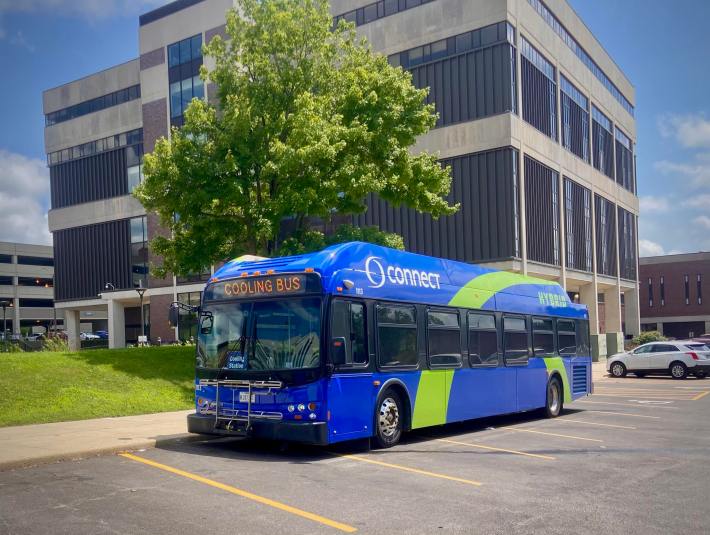
Bloomington-Normal's Connect Transit: How do you help them grow university ridership and help them expand their EV bus fleet, which is a big deal for them. My former college town, Champaign Urbana, the MTD there, they're a national model for campus and community transit, but they still need sustainable budget. This has to be a statewide bill, and I think that's how you bring the people along. That's how you get the votes you need, to not just have this be something that is helping out the northeast corner of the state, but the entire state of Illinois.
Why should the transit governance portion of the bill be analogous to a Wu-Tang Clan track?
JG: All right. Well, this has been a really long interview, so I suggest we cut off there. But if you've got anything else to say, let me know.
[I had previously asked Rep. Buckner to recommend a song related to the transit funding situation to quote at the top of this article.]
RKB: I don't have an answer to your first question about the song. But I grew up in a musical household, and I often use musical and sports analogies to make sense of larger policy issues. And when I think about what the reform part of this bill does, I think about it like... I'm a Wu-Tang Clan fan. When the Wu-Tang Clan
gets on a track it works, not just because everything sounds the same, but because they understand the structure. RZA lays the foundation. Ghostface Killah brings the emotion. Method Man rides the pocket. [Notably, the representative did not allude to the group's most colorful member, the late Ol' Dirty Bastard.] And you've got different flows, but they share the same common rhythm and unified message. A mutual respect for time and for tone, whatever it is you want to call it. That's what makes them a clan, not just a collection.
Video of the Wu-Tang Clan track quoted in this article's intro, "C.R.E.A.M.", an acronym for "Cash Rules Everything Around Me" (NSFW).
I'm also a fan of The Three Tenors [an opera supergroup], Luciano Pavarotti, Plácido Domingo and José Carreras. They've got different vocal ranges, different strengths, but one stage, one conductor, and one score. That's harmony, and together sounds like brilliance.
The Three Tenors sing a pop music medley.
Our transit system right now is like three bands playing different songs in the same room, right? CTA is doing punk rock, Metra is doing jazz, Pace is halfway through a slow ballad.
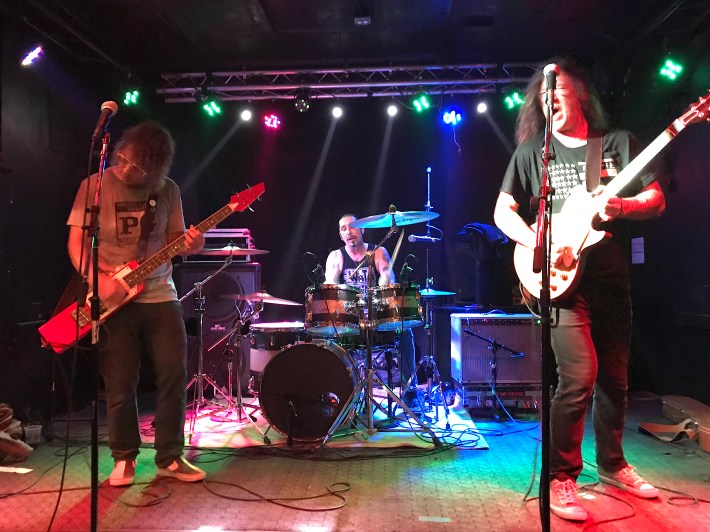
And no one listens to each other, but more importantly, no one listens to the audience. And the audience is the riders, the people trying to get to work, trying to get to school, trying to get to church, to court, to chemo, to opportunity, right?
And so we don't need to drown each other out. We need to play in concert. And this is also true for both the House and the Senate in this conversation, I believe we're going to do that. This legislation is about getting these systems in sync, not to erase their differences, but to make sure that they have the same mission, they serve the same people, which is what they should be doing in the first place.
So I truly believe that we can do this. I'm not Pollyanna-ish. I understand the implications of what's at stake here, but I know we're also doing the work. I have a lot of confidence that we'll get this over the finish line.
JG: All right, cool. Well, great musical analogies. I'm glad I stuck around for that!
Check out Wednesday's interview with House Speaker Welch about transit funding here.
Read Streetsblog's recent interview on this topic with Senate President Harmon here.
Read our interview with Sen. Villivalam on this subject here.
Check out our interviews with State Sen. Mike Simmons and State Rep. Hoan Huynh on the topic here.

Do you appreciate Streetsblog Chicago's reporting and advocacy on local sustainable transportation issues? If you haven't already, please consider making a tax-deductible donation here to help us continue publishing in 2026. Thanks!
